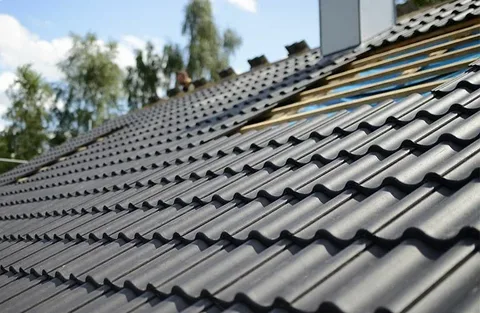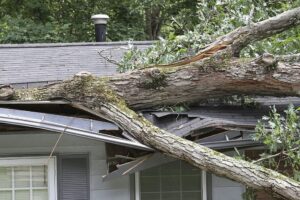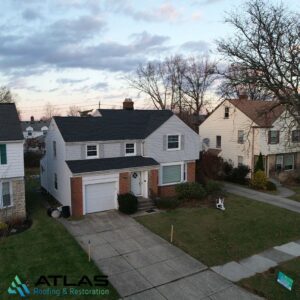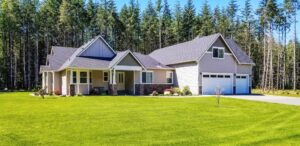Commercial roofing plays a critical role in the overall value and functionality of a property. For business owners, property managers, and investors, understanding how roofing impacts the value of a commercial property is essential to make informed decisions when it comes to maintenance, repairs, and replacements. The roof is often one of the most overlooked elements of a building, yet it serves as a key protective barrier, contributing to energy efficiency, aesthetic appeal, safety, and long-term value. In this article, we will explore how commercial roofing can affect your property’s value and why it’s essential to pay attention to its maintenance and quality.
1. Curb Appeal and First Impressions
The exterior appearance of a building has a significant impact on its perceived value. The roof, being one of the most prominent features, is directly linked to curb appeal. Whether it’s a sleek, modern flat roof or a more traditional sloped roof, a well-maintained, attractive roof can make a positive first impression on clients, tenants, and potential buyers. On the other hand, a worn-out or neglected roof can create a negative perception, diminishing the property’s aesthetic appeal and deterring potential tenants or buyers.
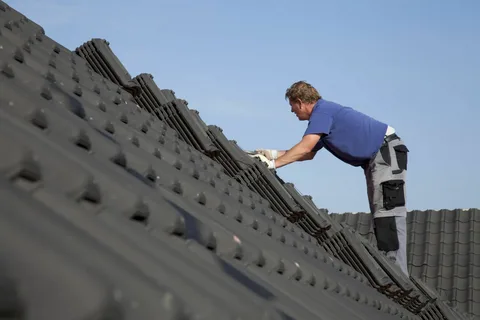
When a roof appears outdated, damaged, or poorly maintained, it signals to prospective clients or buyers that other areas of the property may not be well cared for either. This can reduce the attractiveness of the property and potentially lower its value. A well-maintained roof, however, demonstrates that the property is in good condition overall, which can significantly boost its value.
2. Energy Efficiency and Cost Savings
Energy efficiency is one of the main factors influencing a commercial property’s value. An energy-efficient building is not only beneficial for the environment but also results in significant cost savings for business owners. Roofing plays a pivotal role in the energy efficiency of a building, especially in terms of insulation and ventilation. A quality roof can help regulate indoor temperatures, reducing the need for heating or cooling systems to work overtime.
For example, a commercial roof with proper insulation prevents heat loss during winter and keeps the building cool during summer. This reduces the demand for HVAC systems, leading to lower energy bills for the property owner. Moreover, many commercial roofing materials, such as cool roofs or reflective coatings, are specifically designed to minimize heat absorption, making the building more energy-efficient.
Buildings with high energy efficiency are increasingly attractive in the marketplace due to rising energy costs and growing demand for sustainable practices. Thus, a well-constructed roof can improve a property’s value by enhancing its energy performance, making it more appealing to environmentally-conscious tenants and buyers.
3. Protection Against the Elements
The primary function of any roof is to protect the building from the elements, including rain, snow, wind, and extreme temperatures. A reliable roof prevents water from seeping into the building, which can lead to costly water damage, mold growth, and structural deterioration. Over time, water intrusion can weaken the foundation and walls, leading to expensive repairs that can drastically reduce the property’s value.
A roof that offers reliable protection also ensures the safety and comfort of the building’s occupants. This is particularly important in commercial properties, where the safety of employees, tenants, or customers is a top priority. A roof that functions well and offers optimal protection from the elements is a key asset that can enhance the property’s value.
Conversely, a roof that fails to provide adequate protection will not only lead to safety concerns but also contribute to higher maintenance costs. This reduces the property’s long-term value and could deter potential buyers or tenants who are concerned about future repair expenses.
4. Structural Integrity and Longevity
The condition and age of a roof directly affect the structural integrity of a building. A new or well-maintained roof indicates that the building is well taken care of and that future repair costs are minimal. In contrast, an old or poorly maintained roof suggests that the property may require significant repairs or replacements, which could lead to higher costs for the owner.
When a roof is nearing the end of its lifespan, the likelihood of leaks and other issues increases. This can cause significant damage to the property’s structure, including walls, ceilings, and even the foundation. Roofs that need to be replaced soon may make potential buyers or tenants hesitant, as they anticipate having to bear the cost of a new roof sooner rather than later. This reduces the overall value of the property and can complicate the sales process.
On the other hand, a roof that is well-maintained and in good condition suggests that the property will remain structurally sound for years to come, making it a more attractive investment.
5. Compliance with Building Codes and Standards
In many areas, commercial properties are required to comply with local building codes and regulations, which often include specific roofing standards. A roof that does not meet these requirements can result in fines, legal issues, or even forced closure of the business. If the roof is outdated or non-compliant, it can complicate the sale or lease of the property, as buyers or tenants may be hesitant to invest in a building that requires significant upgrades to meet legal standards.
By ensuring that your commercial roof is up-to-date and in compliance with building codes, you protect your property from potential legal and financial issues. A roof that meets these standards not only safeguards the value of the property but can also make it more appealing to prospective buyers or tenants who are looking for a property with minimal risks.
6. Impact on Insurance Costs
The condition of your commercial roof can also affect your property’s insurance premiums. Insurance providers typically offer lower premiums for properties that are in good condition, as they pose less risk for claims. A new or well-maintained roof reduces the risk of damage from storms, leaks, or other hazards, which can lower your insurance costs.
On the other hand, if the roof is old or in poor condition, insurance companies may charge higher premiums or refuse to provide coverage altogether. This can be a major concern for property owners, as the added cost of insurance can eat into profits and reduce the property’s overall value.
7. Improved Marketability
Finally, commercial roofing can impact the overall marketability of a property. A high-quality, modern roof can serve as a selling point when marketing the property to prospective tenants or buyers. The roof’s functionality and appearance can be highlighted as a key benefit, helping to differentiate the property from others on the market.
In a competitive real estate market, having a roof that stands out can be a game-changer. A modern, well-maintained roof can be used as a selling tool, making the property more attractive to potential buyers or tenants. This can ultimately increase demand for the property, raising its value.
8. Choosing the Right Roofing Contractor
When it comes to maintaining or replacing a commercial roof, choosing the right roofing contractor is crucial. Working with a reputable contractor ensures that the roof is installed or repaired correctly, using high-quality materials that will stand the test of time. A poorly installed or low-quality roof can result in frequent repairs and a reduced property value, while a professionally installed roof will increase the longevity and value of the property.
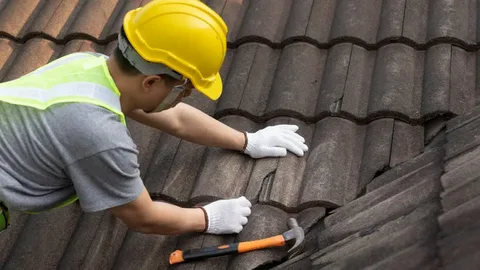
At Atlas Roofing & Restoration, we specialize in providing top-quality commercial roofing services. Whether you’re looking to replace an aging roof, repair storm damage, or improve the energy efficiency of your building, our expert team has the skills and experience to help. We are committed to delivering the highest standard of service, ensuring that your commercial property is well-protected and retains its value for years to come.
Conclusion
The roof of a commercial property is more than just a protective barrier—it’s a critical component that directly affects the property’s value. A well-maintained, energy-efficient, and aesthetically appealing roof can enhance the building’s curb appeal, reduce energy costs, and improve its overall marketability. Conversely, a damaged or poorly maintained roof can lead to higher repair costs, reduced safety, and a decrease in property value.
By prioritizing roof maintenance, making necessary repairs, and investing in quality roofing materials, property owners can significantly increase the value of their commercial properties. At Atlas Roofing & Restoration, we understand the importance of a strong, durable roof in maintaining and increasing the value of your property. Contact us today for expert roofing services that will help protect your investment for the long term.

